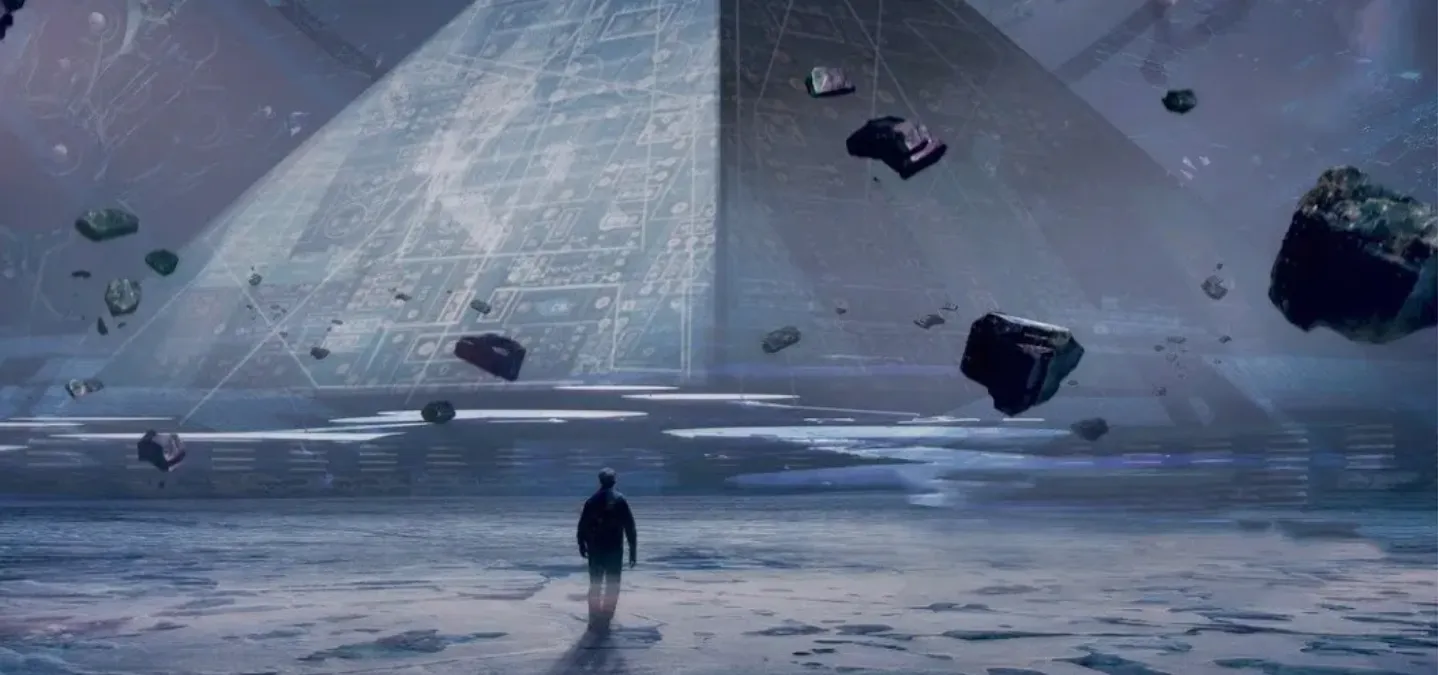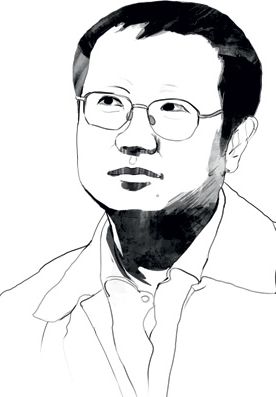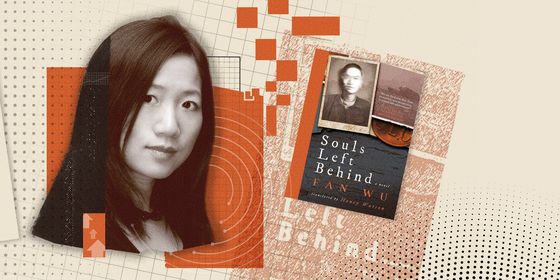A look into the first installment of the outstanding Three-Body sci-fi trilogy
“Attention, you who have received this message! This message was sent out by a country that represents revolutionary justice on Earth! Before this, you may have already received messages sent from the same direction. Those messages were sent by an imperialist superpower on this planet. That superpower is struggling against another superpower for world domination so that it can drag humanity backwards. We hope you will not listen to their lies. Stand with justice, stand with the revolution!”
That quote is China’s first draft of a message to the stars at the height of the Cultural Revolution in Liu Cixin’s (刘慈欣) peerless The Three-Body Problem, translated into English by Ken Liu. The story grapples with a reality in which science is not what it seems, all against the backdrop of a near future and China’s dystopian past. Indeed, even explaining that much seems like a spoiler, suffice to say that Three-Body combines the logical precision of Asimov with the surreal metrics of Neal Stephenson to create a world that makes perfect, hopeless sense.
It may seem strange to compare Liu’s work to Western authors, but Liu admits that a “considerable part of the science fiction” he has read comes from America. Intellectual science fiction has had a difficult time getting off the ground in China, where imagining the future has not always been, and still very much isn’t, safe. However, Liu’s work is a masterstroke by any measure.
What drives the work is uncertainty—a mystery and conspiracy down to the level of the proton. Liu tells the tale with a gravitas led by some of the fictional world’s greatest scientists, thinkers, and prodigies. However, it is perhaps a lowly Beijing police officer that gives the best advice for reading Three-Body: “Anything sufficiently weird must be fishy.”
Those words from the detective known as Da Shi (who would perhaps feel more at home in a Raymond Chandler novel) in Three-Body set the tone for the work, in that normal scientific logic isn’t going to help you one bit. Nothing you can imagine is going to beat the stacked judgment of Liu’s fictional geniuses. In short, think like a cop and not a scientist. As Wang Miao, the main character, states, “Pseudoscience is afraid of one particular type of people who are very hard to fool: stage magicians...compared to the bookworms of the scientific world, your experience as a cop makes you far more likely to perceive such a large-scale conspiracy.”
Shi and Wang are the two most relatable characters in the book—the frightened scientist and the grizzled cop, who Wang describes as, “the man who feared nothing because he knew nothing.” Three-Body, however, hosts a gaggle of relatable extremes: there’s Ye Wenjie who betrays her species, there’s supreme environmentalist Mike Evans, there’s the lazy prodigy Wei Cheng, and to top it off there is a host of imagined historical and modern characters spanning East to West that are never quite real.
In this menagerie of genius and talent, the downfall of civilization as we know it is palpable. But, then again, civilization as we know it is very much a character of its own in the novel. Be it zombies or natural disasters, the vogue trend of dystopias inundates bookshelves everywhere, and the concept plays an important role in Three-Body. To begin with, the greatest minds in science-fiction would be hard-pressed to create and imaginary dystopia (either in logic or subsistence) more apt than the Cultural Revolution. Light years away, Liu manages to create a foil of this dystopia, real or imagined, in which the natural movements of space create horrors of uncertainty, driving the same inevitable journey to cruelty and madness seen on Earth.
But, this is hardly the thesis of Liu’s work. Indeed, it’s just the setting, one of many. One of the most impressive aspects of Three-Body is the telling of a linear story throughout time (and reality for that matter) seamlessly, all while jumping from perspective to perspective. The novel tells the story through redacted government documents, personal tales of tragedy, interrogation transcripts, and most impressively inside what must amount to the greatest video game concept of all time.
Part of the reason for all of this jumping about is that the science Liu uses is at once groundbreaking, complex, and/or speculative. Wei Cheng, for example, explains the physical three-body problem in regards to the father of chaos theory Henri Poincaré: “Everyone seems to believe that Poincaré proved that the three-body problem couldn’t be solved, but I think they’re mistaken. He only proved sensitive dependence on initial conditions...But sensitivity is not the same as indeterminable.”
For lovers of the sciences, Three-Body is a smorgasbord. Everything from computing and mathematics to applied mechanics and particle physics—the history and theories of these disciplines (and more) play an integral role in Liu’s mad world of scientific conquest. In many ways, Three-Body is the story of science, the assumptions it makes, the hope it gives us, and the doom that awaits.
This isn’t to say that one who doesn’t know Roche limit equations won’t enjoy or understand the book; in fact, it’s not the scientific exposition that makes Three-Body so endearing—it’s the imagination. Wei Cheng arrives at his theory via meditation in a Buddhist temple, conjuring a complete vacuum of space and the perpetual motion of masses in total emptiness. The speculative science gets, to put it mildly, trippy. In an attempt to unfold the dimensions of a single proton, the particle becomes one dimensional—a line segment stretched 15,000 light years long with the mass of one proton.
Ignoring all of this elegantly thought out science, Three-Body asks a question, a very old question in the annals of sci-fi: should the human race surrender to an unknown but vastly more advanced intelligence. This question takes on new meaning with each of Liu’s characters. The reader is asked to posit this question to Ye Wenjie for example, and who, when looking at the horrors and madness of the Cultural Revolution and imminent nuclear annihilation from the “American imperialists” and “Soviet revisionists”, could possibly contend that the human race has a noble destiny? This question could also be asked of Mike Evans, environmentalist to the stars in a near future which seems, in terms of ecology, just as similarly doomed as today. Lazy genius Wei Cheng, too, sees this futility, saying, “The entire human race has reached the point where no one is listening to their prayers.”
This feeling of hopelessness permeates the novel from the moment the business-like General Chang informs the main character, Wang Miao, that physicists have begun to kill themselves. From here, science itself descends into madness and Wang asks, “Can the stability and order of the world be but a temporary dynamic equilibrium achieved in a corner of the universe, a short-lived eddy in a chaotic current?” That is the driving question readers will ask themselves throughout. For much of the novel, the feeling is that the good times are over and something terrifying is on its way; Wei Chang says, “Yes, the entire history of humankind has been fortunate. From the Stone Age till now, no real crisis has occurred. We’ve been very lucky. But if it’s luck, then it has to end one day. Let me tell you: It’s ended. Prepare for the worst.”
Everyone in the grand game of Three-Body (not the fictional game of 3body in Three-Body) plays the part of a pawn. Nursing the seeds of conspiracy are pointless once logic itself is suspect, so the reader has to learn to look at things like Da Shi, who says, “I’m a simple man without a lot of complicated twists and turns. Look down my throat and you can see out my ass.” It’s the only way to keep up with Liu Cixin’s own little magic trick—look at two of the three bodies and know he’s doing something weird to the third.
An important aspect of Three-Body is time and waiting: 50 years of waiting, 450 years of waiting, countless millennia of waiting, waiting on the scale of evolutionary development. So, be warned, this is only the first volume of the Three-Body trilogy. The longest wait of all for English speakers who read this book is for July 7, 2015, when the follow-up Dark Forrest hits English bookshelves.













